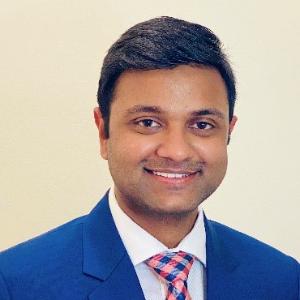Title : Oncogenic potential of SARS-CoV-2: A trouble in the future?
Abstract:
Coronavirus disease 2019 (COVID-19) emerged as a pandemic caused by the severe acute respiratory syndrome coronavirus 2 (SARS-CoV-2) with high mortality worldwide. COVID-19 infection can be asymptomatic or can cause multi-system disease of varying severity. The long-term effects of COVID-19, such as fatigue, loss of smell, dyspnea, etc., are still being studied. Through this discussion, we will try to explore the oncogenic potential of SARS-CoV-2.
Cancer is the world's second leading cause of death. The association between viral infections and the risk of developing cancer is well established. It is estimated that 15.4% of all cancer cases can be attributed to carcinogenic infections, for which viruses are the main risk factor [1]. The connection between various cancers and viruses such as human papillomavirus (HPVs), hepatitis viruses B and C (HBV and HCV), human gamma herpes viruses (HHV4/Epstein-Barr Virus, EBV), HHV8/Kaposi's sarcoma-Associated Herpesvirus (KSHV), Merkel cell polyomavirus (MCPyV), and human T-cell leukemia virus I (HTLV-1) have already been established. On the other hand, SARS-CoV-2 is a new player and is still being researched. There are growing concerns that SARS-CoV-2 can increase the incidence of lung, colorectal, breast, pancreatic, and oral cancer.
SARS-CoV-2 may induce the expression of nsp15, which causes proteasomal digestion of tumor suppressor PRB and can downregulate p53 gene, disrupting apoptotic pathways. It can also interact with epigenetic modifiers or chromatin and epigenetic changes that are known to be important for both viral infection and cancer progression. Another proposed mechanism is through inducing inflammatory pathways. SARS-CoV-2 is known to cause cytokine storm-generating free radicals, NF-κB activation via TNF-α, etc., which can damage DNA and evoke tumorigenic processes. Chronic inflammatory diseases such as lung fibrosis and interstitial lung disease are complications of SARS-CoV-2 infection and are known to be precursors of cancers.
During SARS-CoV-2 infection, the virus binds to ACE2 receptors to enter the cell and then downregulates AT1R, which leads to dysregulation of the RAAS system. This process can cause inflammation, vasoconstriction, fibrosis, oxidation, and capillary permeability, contributing to cancer progression and development. There are various hypotheses, but the exact mechanism is still unknown and remains a hot topic for research. Future research into cellular mechanisms, long-term observational studies, and analyses are needed to reveal the truth.
Audience Takeaway:
- The audience will learn about the long-term complications of COVID-19 infections.
- To increase awareness among clinicians of this potential complication, which can improve patient outcomes through screening and early diagnosis
- To motivate peers for additional research in this field
- In the long term, we can develop new guidelines for screening and treating such patient population



